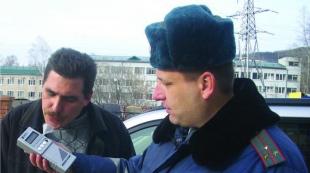May 4 State Council meeting results. Transcript of the meeting of the State Council and the commission for monitoring the achievement of target indicators of the country's socio-economic development
A joint meeting of the State Council and the Commission for Monitoring the Achievement of the Main Indicators of the Country's Socio-Economic Development was held today. The topic of the meeting is the "May decrees" of President Putin, the social sphere and housing and communal services. Particular attention is paid to the topic of emergency and dilapidated housing and its resettlement, which is very relevant and even scandalous in recent times.
As President Putin himself stated at the meeting, the implementation of the "May Decrees" gave new impetus to positive changes in the most sensitive areas for citizens, but there are still a lot of unresolved problems. "Over the past years, it has been possible to give some new momentum to positive changes in the most sensitive, significant areas for the life of citizens, such as healthcare, education, culture, housing and communal services," Putin said.
“Of course, there are still very, very many problems here, and there are more unresolved issues than what has been done,” the President of the Russian Federation added. Nevertheless, according to him, the implementation of the May decrees has strengthened the partnership of all levels of government and civil society. The president especially noted the role of the "All-Russian People's Front" in this process, as an independent observer, controller and conductor of the voice of "civil society".
According to him, the effectiveness of communications and mechanisms of work has seriously increased due to the activities of the ONF. In this regard, the president urged to further expand the dialogue with professional, volunteer, civil associations and NGOs, "to create new opportunities for the implementation of the initiatives of our people."
"The successes achieved should become the basis for moving forward - this is the only way to respond to people's requests, today they are already guided by the highest world standards, which means that we have to decide more and more challenging tasks", Putin said.
The President also called for expanding the participation of the ONF in conducting an independent assessment of the quality of the work of social organizations. "It is necessary to exclude a conflict of interest in the course of an independent assessment. To do this, it is necessary to expand the participation in its conduct of the All-Russian Popular Front, socially oriented NGOs, public chambers in the regions. I ask civil activists to regularly inform about how this work is going, whether objectivity is increasing, whether they are satisfied whether people are the results of these assessments and subsequent decision-making,” Vladimir Putin said.
At the same time, with regard to the assessment of the implementation of the "May decrees", representatives of the ONF fully confirmed the ambiguous assessments of the president regarding the effectiveness of work in this direction. The head of the executive committee of the ONF, Alexei Anisimov, said that the ONF considers less than a quarter of 179 orders within the framework of the execution of the "May decrees" of Russian President Vladimir Putin to be fulfilled.
"ONF monitors the execution of instructions based on the eight "May Decrees" and instructions in their development. ONF experts prepared conclusions on the reports of the Russian government on 179 instructions as part of the execution of the "May Decrees" and in their development. Of these, the ONF considers completed - 35 instructions, 44 instructions were not executed, and 100 instructions were partially executed and need to be improved," Anisimov said.
Anisimov added that the ONF considers the targets achieved on behalf of the access of citizens to public services in the "one window" mode. At the same time, the waiting time in the queue has not yet been reduced to 15 minutes, although citizens are already satisfied with the situation with the MFC. Activists record cases when they have to wait 30-40 minutes. In addition, in some regions, less than half of the mandatory list of services is provided at the MFC.
At the same time, the president believes that the project of multifunctional centers (MFCs) as a whole has become successful, but one cannot stop there, supporting Anisimov's expert assessment. "This project has become successful, but we cannot stop at what has been done. Queues still remain in some centers, oddly enough, far from everywhere a full range of services is provided, and their quality even there, in the MFC, does not always meet the requirements that people they are brought against them," Putin said.
The President added that it is the opinion and wishes of visitors to the centers "should become the basis for further improvement of the work of multifunctional centers." According to him, the fundamental task is that citizens can apply to any MFC, regardless of their place of residence and registration, "this is an important step towards creating a coherent integrated system for the provision of state and municipal services."
Also, among the specific problems and tasks that are on the agenda and which are yet to be solved, the topic of emergency housing has become one of the key ones. According to the same Anisimov, the ONF, monitoring the implementation of the "May decrees" of the President of the Russian Federation, revealed serious violations in the implementation of the resettlement program from emergency housing. Activists spoke about more than a hundred such buildings in 27 regions of the country and about "ghost houses" that exist only on paper.
According to him, some regions are "strange" by accepting uninhabitable houses or buying dubious housing on the secondary market. So, in Komi, two rural families received apartments in old wooden houses instead of an emergency one, and in the Malopurginsky district of Udmurtia, out of the 14 checked houses, most of them turned out to have neither sewerage nor hot water but there were cracks in the walls. Anisimov demanded to take this situation under "special control".
At the same time, the Minister of Construction and Housing and Public Utilities of the Russian Federation Mikhail Men said that the Ministry of Construction and Housing and Public Utilities of Russia expects an increase in the volume of emergency housing in the country. "The fact is that almost half of the housing stock in our country was built before 1970," he recalled.
In turn, the president, recognizing that the problem of resettling dilapidated housing is very acute, turned to those who are trying to impose on Russians houses that are not prepared for moving, with rather harsh criticism. “I want to warn those who, in the pursuit of meeting deadlines, are trying to impose houses on people where the roofs are leaking, the plaster is falling off. That is, according to the principle "take, God, what is worthless to us." Not only timing is important, but also the quality of life.”
However, one can hope that the monitoring of the ONF, which, as can be seen from Anisimov’s report, is already giving quite tangible results in identifying violations in the process of resettling emergency housing, will continue to remain just as effective - and citizens will not have problems moving to new well-appointed houses.
MOSCOW, May 4 - RIA Novosti. The implementation of the "May decrees", the provision of state and municipal services through a network of multifunctional centers (MFCs), an independent assessment of the quality of services in the social sphere and the resettlement of citizens from dilapidated housing - these are the main topics of the joint meeting of the State Council held on Thursday and the commission for monitoring social targets. - economic development of the country.
At the meeting, Russian President Vladimir Putin instructed the Russian government and regions from January 1, 2019 to introduce a permanent mechanism for the resettlement of citizens from dilapidated and dilapidated housing. In addition, the head of state stated the need to encourage social institutions that respond to the requests of citizens, and also praised the MFC project, but urged not to stop there.
Implementation of May Decrees
At the meeting, Putin addressed the head of the Accounts Chamber, Tatyana Golikova, and the head of the executive committee of the All-Russian Popular Front (ONF), Alexei Anisimov, with a request to voice their assessments regarding the implementation of the May decrees.
According to Anisimov, out of 179 instructions within the framework of the execution of the "May decrees" of the president, the ONF considers 35 completed, 100 instructions were partially executed and require revision, 44 instructions were not executed.
The President of the Russian Federation signed the "May Decrees" on the day of his inauguration as head of state on May 7, 2012. The decrees contained the parameters that the Russian economy should reach during his presidential term.
Relocation from dilapidated housing
One of the issues discussed at the meeting of the State Council was the resettlement of dilapidated and dilapidated housing. By September 1, 2017, the program for the resettlement of housing, recognized as emergency on January 1, 2012, should be completed in Russia. In total, according to data as of April 1 this year, in Russia, since 2008, more than 860 thousand people out of more than 13 million have been resettled. square meters housing, which corresponds to 73% of the implementation of the resettlement plan, according to the materials to the State Council. Currently, 20 Russian regions are lagging behind the planned indicators for the resettlement of emergency houses.
The head of state instructed the government of the Russian Federation and the regions from January 1, 2019 to introduce a permanent mechanism for the resettlement of citizens from dilapidated and dilapidated housing. At the same time, the operation of the housing and communal services fund, which has proven its effectiveness, should be extended for the transition period until 2019, the president noted.
The President also announced the need to deal with situations where, for formal and far-fetched reasons, people were not included in the resettlement program. Putin also stressed that when resettling Russians from dilapidated and dilapidated housing, not only the timing is important, but also the quality of the apartments provided.
“At the same time, I want to warn those who, in the pursuit of meeting deadlines, are trying to impose houses on people where the roofs are leaking, the plaster is crumbling, that is, according to the principle “God take it, what is worthless to us,” well, just to report back. I want to repeat: it’s not important only the timing, but also the quality of housing," he said.
In turn, the Minister of Construction and Housing and Public Utilities of Russia Mikhail Men, giving his assessment of the current situation, said that the department expects an increase in the volume of emergency housing in the country.
"The fact is that almost half of the housing stock in our country was built before 1970," he recalled.
Men proposed to financially encourage the constituent entities of the Russian Federation, which settled emergency houses ahead of schedule. As an example, Men cited the Kaliningrad region and Ingushetia, which were the first to complete the resettlement of dilapidated housing - back in 2015 - and received financial support by decision of the Prime Minister. This allowed these regions to allocate additional funds for the resettlement of the newly formed emergency fund, the minister noted.
The head of Chuvashia, Mikhail Ignatiev, made a proposal to take into account the social status of residents when resettling emergency housing. Ignatiev proposed to implement five mechanisms for the resettlement of dilapidated housing, taking into account this factor.
According to him, the first mechanism is the development of built-up areas. The second is the development of the rental housing market. The third is the creation of a legal and organizational mechanism for the implementation of the initiatives of the owners of premises in apartment buildings for the independent implementation of projects for the reconstruction of dilapidated housing, the construction of new housing on land plot, which is released after the demolition of the emergency house. Fourth - the introduction of a new type of housing stock - a specialized housing stock for the resettlement of citizens from emergency housing stock. The fifth is the issuance of state or municipal housing certificates for citizens relocating from emergency housing.
He also noted that in order to implement these mechanisms at the level of the Russian Federation, it is necessary to develop a new legal framework.
Services in the social sphere
Having dwelled on the topic of assessing the quality of social services, the head of state spoke about the need to encourage social institutions that listen to citizens and take tough measures against those who do not respond to citizens' requests.
He recalled that as part of the implementation of the "May Decrees", the introduction of an independent assessment of the quality of the work of social organizations has begun. As Putin noted, "the results obtained should not be filed in a folder, put under a cloth."
At the same time, the president stated that it is necessary to exclude a conflict of interest in assessing the activities of social institutions, for this it is necessary to expand the participation in its implementation of the All-Russian Popular Front, socially oriented NGOs, public chambers in the regions
“It is fundamentally important to ensure complete independence of the assessment. Now there are still cases when budgetary organizations arrange a so-called “get-together”, interrogate and evaluate themselves, and then it turns out that polyclinics, for example, formally have a high rating, but in reality there are no specialists not to get in, and, in general, the level of service is quite low," Putin said.
He explained that an independent assessment is needed "not for show", it represents a real opportunity to influence people's lives.
In turn, the head of the Ministry of Labor Maxim Topilin, speaking on this issue, noted that an independent assessment of all social institutions providing services should be completed in 2017. At the same time, in his opinion, starting from 2018, it is necessary to change the format for conducting an independent assessment.
Topilin noted that in order to improve its quality, it is worth considering legislative consolidation of a mandatory report on the result of an independent assessment.
"During the discussion and preparation for the State Council, we came to the conclusion that it would probably be advisable to enshrine in the legislation that the executive authorities make a public report on the results of an independent assessment in their legislative assemblies. This could seriously increase both responsibility and publicity of these events, and control over how they will be used," the minister added.
One of the topics of the State Council was also a project to create multifunctional centers. Putin called it a success, noting that there are 3,000 multifunctional centers throughout the country, the number of applications to which exceeded 60 million last year. At the same time, he stressed that one cannot stop at what has been achieved, the opinions and wishes of people should become the basis for further improvement.
The head of state recalled that a few years ago, Russian citizens, in order to obtain a certificate or a document, were forced almost everywhere, without any exception, to "stay in queues, knock on the thresholds of various offices, pay money to intermediaries."
"Yes, indeed, and now there are still many problems of this kind, but nevertheless, the situation as a whole is beginning to change. Today, many people come to multifunctional centers where they can get a certificate for maternity capital, a certificate of an individual entrepreneur, register property, and receive other services" , - he said.
The President noted that it is necessary to create conditions under which citizens can apply to any MFC, regardless of their place of residence and registration.
The head of the Rostov region, Vasily Golubev, commenting on the work of the MFC, noted that citizens and businesses should be able to assess the quality of regional and municipal services they receive. According to him, the system for assessing the services provided should become even more personalized.
“At least, it should be possible to analyze the reasons for low ratings. Their share is not very large at the moment. But they still remain an indicator of the problem. It is important to know exactly the reasons for the applicant’s dissatisfaction,” Golubev said.
One hundred tickets to the dance
In his speech, the chairman of the LDPR, Vladimir Zhirinovsky, who also took part in the meeting, unexpectedly touched upon the problem of a lack of places for leisure - he lamented the lack of dance floors for young people or older people.
"There are clinics, schools - everything is there. For leisure, what is there? A playground for walking dogs, a parking lot, a playground (there is). But for adults from 15-20 years old to 90, where will they spend their leisure time? Today, May 4 , the capital of our Motherland, come on, where can you go to dance, just like that? Not a restaurant, just a person wants to go to rest, neither eat nor drink, nothing ... No!" the chairman of the party said.
In connection with this, Russian President Vladimir Putin asked the mayor of the capital: "Where will we go to dance?"
"Vladimir Vladimirovich, about Vladimir Volfovich's concern about dance floors - there are dance floors in every park. Therefore, we will send him a hundred invitations so that he has a choice," Sergei Sobyanin replied.
From the transcript:
Kremlin, Moscow
Dmitry Medvedev's speech at a joint meeting of the State Council and the Commission under the President for Monitoring the Achievement of Target Indicators for Russia's Socio-Economic Development
D. Medvedev: Dear Vladimir Vladimirovich! Dear colleagues!
Today, at a joint meeting of the State Council and the Commission for Monitoring the Achievement of the Target Indicators of the Socio-Economic Development of our country, really very important issues are being considered. The degree of implementation of each of the projects is different, but nevertheless allows us to say that in all three areas of activity we have made a significant step forward in recent years. Speaking about the MFC system, everyone said that our people still consider this system as useful, as established, as reducing the amount of bureaucratic activity, all kinds of paperwork that needs to be collected.
The task of the Government is to achieve the indicators set in the decrees and move forward in expanding the range of services of multifunctional centers, because it is convenient, to create new services there that would be useful for citizens, and, by the way, to intensify work with legal entities.
In terms of independent quality assessment, of course, there are both achievements and problems that the colleagues who spoke here spoke about. It is obvious that we need to support the ideas related to the creation of a single technological platform, the simplification of all the tools that are used to assess quality. And just for this assessment to be honest, to be based on the real positions of people, to be carried out in such forms that are accessible to people who evaluate the activities of federal government bodies, regional executive bodies and other institutions.
In terms of the most important task of housing resettlement, the situation is really so multidimensional, but, probably, the main thing is what colleagues talked about in their speeches: for the first time in the Soviet period and in the post-Soviet period, the authorities undertook to solve the most important task of resettling the country's citizens from emergency housing Fund, and in such a detailed format. Because this kind of work in previous years was carried out exclusively in such an individual order, and now all this work was carried out precisely throughout the country.
It is obvious that the figures that we have reached are quite good: more than 75 percent. Although it is clear that it is necessary to do what was said in the reports and speeches, namely, it is necessary that those regions that have allowed a lag, including due to managerial problems, make up this lag as quickly as possible, and the Government, of course, will to provide these regions with all necessary assistance in this regard.
It is necessary to control the quality of those buildings and residential premises that are rented out. Here, the situation is really unacceptable when unprepared premises are rented out to achieve digital indicators. Control over this also remains with the Government, as well as with other structures.
And, probably, it is very important that the initiative, the instruction that has just been formulated by the President, to prepare a draft law on the creation of a permanent mechanism that would work from January 1, 2019, be carried out. Because this is the main question that, in any case, governors ask me as the Prime Minister and my colleagues: what to do next? It is this draft law, prepared at the direction of the President, that should answer this question.
It is obvious that all these projects are in the epicenter of public attention, as our colleagues from the State Duma, representing our various political parties. I recently presented a Government report - it is clear that assessments can be different.
The most important thing that I would like to draw your attention to is that all these assessments are still given on the basis of the current, formed economic situation, and not sterile approaches, as we sometimes hear from the lips of our comrades, our colleagues, who take some abstract model and offer us to work in this model.
Speaking in the State Duma, I said: "Dear colleagues, you understand that the financial and economic restrictions that have formed in the country's economy have really not gone anywhere." That is why we are forced to take them into account, although even under these conditions, in recent years, the implementation of the decrees has acquired a large-scale character - and the figures that Vladimir Vladimirovich spoke about and other colleagues said were achieved.
Naturally, work on all problems should be continued. The government understands and is aware of this. Naturally, we will continue to search for financial reserves, as our colleagues spoke about, Gennady Andreyevich Zyuganov spoke about. As for the issues related to how to evaluate what has been done (in particular, the same indicators in medicine, some others that Vladimir Volfovich spoke about), it seems to me that the evaluation criterion here is quite simple, it is obvious: is the lifespan. Objectively, she has grown. Quite recently, when we started working, she was 65-66 years old, the average life expectancy in the country. Now she is 72 years old, and she is getting bigger. This is a summary indicator, and it is necessary to rely on it when assessing the achievement of indicators of decrees in a number of areas.
Naturally, the Government will continue to implement the decrees and will try to fulfill all those tasks that have not yet been fulfilled at the moment, also taking the necessary regulatory decisions in this regard.
Experts of the All-Russian Popular Front analyzed the implementation of the "May Decrees" of the President of Russia, the leader of the All-Russian Popular Front Vladimir Putin and prepared a certificate, the data from which were presented during a joint meeting of the State Council of the Russian Federation and the Presidential Commission for Monitoring the Achievement of Target Indicators of Russia's Socio-Economic Development by the Head of the Executive Committee ONF Alexei Anisimov.
Below is a transcript of Alexei Anisimov's speech and Vladimir Putin's closing remarks.
Head of the ONF Executive Committee Alexei Anisimov:
Dear Vladimir Vladimirovich! Dear State Council!
The Popular Front keeps under control 179 of your instructions as part of monitoring the execution of the May decrees. Of these, we believe that 35 instructions have been executed, 44 have not been executed, and 100 instructions have been partially executed and need to be improved. This is how we call those instructions, according to which the activists of the Popular Front record positive dynamics in their implementation, but at the same time they believe that the quality of execution and, most importantly, the ideology of the instructions have not been achieved.
On your instructions, Vladimir Vladimirovich, on citizens' access to public services on a one-stop basis - indeed, almost all residents in the country's regions can receive them at multifunctional centers. This is indeed a great merit of the authorities, and the satisfaction of our citizens in this matter is definitely one of the highest, but, as they say, there is something to strive for.
In some MFCs, and our colleagues noted, less than half of the mandatory list of federal services is provided. It was our monitoring that determined this, the waiting time in a queue in a number of some MFCs remains at the level of 30-40 minutes, and, apparently, as a result, we continue to receive information about the sale of seats in the queue or coupons from one thousand to five thousand rubles.
I noted that in the messages of our partners it was not mentioned that there is such an important segment in the MFC system as territorial separate structural divisions. If the MFC is more than three thousand, then the so-called TOSPs are more than ten thousand. These are just the units that are sometimes located in remote and small settlements, this is the only opportunity for citizens to receive state, regional, municipal services. It is necessary to direct the attention of the authorities precisely there, because there are quite a lot of the sores that were discussed here.
About the program of resettlement from emergency housing. When the Popular Front began monitoring this order, cases of low-quality housing began to come to light, and we reported to you, Vladimir Vladimirovich, that sometimes it was worse than emergency housing: cold in apartments, cracks in the walls of more than five centimeters, shaky foundations, sewerage does not work, mold on the walls and many other horrors.
ONF called such facilities "new emergency housing." Since 2014, activists have identified more than 100 such houses in 27 regions. Most of them, it should be noted, 57, have by now been excluded from our register, people have been moved to new housing or the old one has been renovated.
Also, earlier our activists in the regions found the so-called ghost houses, which were listed as built and put into operation, but in fact turned out to be in the process of construction or we did not find them at all. According to these facts prosecutor's checks were carried out.
But still, it should be noted that at present the quality of housing has become much better. You spoke about the extension of the resettlement program, Vladimir Vladimirovich - people will definitely support it with great gratitude, but there is a problem of completing the current program, Tatyana Alekseevna spoke about this.
Since the deadline is September 1, some regions will definitely not keep up and start acting weird. For example, they are already starting to buy low-quality housing on the secondary market or hastily accept houses that are unsuitable for habitation. So, everyone in the press has already looked, in the Komi Republic, our activists have talked about this many times, in the Priluzsky district, instead of emergency housing, the migrants were provided with apartments in old wooden houses.
The residents refused, arguing with the authorities for a long time. Now they are forcibly evicted through the courts. And literally the State Council received information that our activists were already being invited to the prosecutor's office, to the administration - in general, nothing new, as they say.
In the Udmurt Republic in the Malopurginsky district, 14 houses for migrants have no sewerage, toilets are located on the street, there are no bathtubs, and there are cracks in the walls. But in relation to the relevant officials, just the other day, criminal cases were initiated.
But here it is completely different, the situation is under the control of the head of the region. Therefore, we believe that it is now at the end of this program that special control is needed. It is impossible to end such a large-scale program that has no analogues in the world in this way.
About the system of independent quality assessment, the so-called NOC. Despite the significant efforts of the authorities, in our opinion, it was not possible to make the NOC an effective mechanism for improving the quality of services. ONF activists, within the framework of their own project "People's Assessment of Quality", conducted a selective test survey in institutions that have already passed the official assessment of the NOC. This is about ten percent we have carried out and analyzed the operation of the system as a whole. Conclusions: firstly, the assessment is biased and does not reflect the opinion of citizens.
Monitoring of the ONF revealed many cases when institutions were evaluated on the basis of one, two, three questionnaires. Official ratings in the NOC system do not coincide with the opinion of people: in half of the cases, the official rating is higher than the one given by citizens when filling out exactly the same questionnaires through our activists.
Suffice it to recall an example widely covered in the media (everyone saw this both on TV and on the Internet), when in the Ufa hospital No. 13 a woman with an operated leg crawled to the second floor into the X-ray room, when the elevator has not been working there since 2010 . The hospital is rated "excellent".
In the Yakut boarding house for the elderly and disabled, the doors were not opened to the residents of the boarding school. Tragedy: froze - died, unfortunately, from hypothermia. It was also rated "excellent".
And here is a completely fresh example in the media, and our activists noted: in kindergarten No. 60 Magadan, a three-year-old child escaped. In a preschool institution, they didn’t even miss him, they didn’t notice his disappearance. Missed when his mother came for him. The institution is rated "excellent".
Second. The NOC system is not independent. 2,619 regional operators (we talked about this here, I'll just give you a number), more than 80 percent are budgetary organizations, not independent NOC operators. One budget organization checks another, sometimes subordinate.
Thus, the health department of the administration of the city of Prokopyevsk in the Kemerovo region is the operator of 10 subordinate organizations - city hospitals, polyclinics. The Education Committee of the city of Petrovsk-Zabaikalsky in the Zabaikalsky Territory is also the operator of 20 subordinate organizations - schools and kindergartens.
Following. The structure of 1300 public councils, and this is one third, includes the heads of the audited organizations. This has been noted. But we also have a figure that some leaders are members of several councils. When we started our monitoring, literally this year in these public councils they began to hide the positions of chief doctors, heads of institutions and change them to public positions. Here's an interesting way out.
Third. The NQA system does not lead to an improvement in the quality of work of institutions. In accordance with the analysis, in 84 percent of cases there are no meaningful semantic recommendations, as Tatyana Alekseevna spoke about, to improve the quality.
Here is an example. In the Ryazan region, 550 educational organizations received the same, word for word, recommendations of a general nature: to increase, strengthen, deepen, and so on. There are 30 social service organizations in the Oryol region - "recommendations were given to the institution on the development of plans."
And in Kabardino-Balkaria, there is an interesting case: 27 organizations received as recommendations only computer signs in the form of asterisks, and there are a lot of asterisks, eight of them. We propose to exclude the possibility of affiliation of organizations and officials in the course of an independent quality assessment.
The second is to simplify the questionnaires for citizens to fill out. Currently, they are overly voluminous, ranging from 16 to 31 questions, and take 5 to 10 minutes to complete, some of which are not used at all to calculate the grade.
Thirdly, it is necessary to unite on a single technological platform all systems of direct and feedback communication with citizens. How many of them do we have: both “Gosuslugi”, and “Your control” in the MFC, in the MFC system, and the NOC, which we are talking about, and many others there to assess the effectiveness of the work of officials of regional authorities, Central Administration. We need a unified technological platform that is completely clear to any citizen where to go and what to do. And now it is more than 300 sites.
And fourth, and this is very important, is to integrate the NOC system into the system of control and supervision. The results of the NQA should be used as a basis for the inspection of organizations by supervisory authorities and, most importantly, for the adoption of managerial decisions by the authority, the founder.
Dear Vladimir Vladimirovich, that is why the Popular Front does not remove from control such instructions, work on which must be continued in order to improve the quality of life of citizens not in offices, not on paper, but, as they say, on the ground and in people.
Thank you for your attention.
President of Russia, leader of the ONF Vladimir Putin:
Dear colleagues! It is clear to everyone how important the issues we are dealing with are, because they concern almost every family, every citizen Russian Federation anyway. They are all important, but, of course, the resettlement of dilapidated housing is a particularly acute problem. Although these MFCs, which we spoke about at the beginning during the discussion, are no less important, there are other issues that sounded today both within and outside the framework of our today's agenda.
I want to thank, of course, those who worked within the relevant group of the State Council. But first of all, I would like to express my gratitude to those leaders of the regions who are working hard and efficiently, and most importantly, to implement the provisions of the presidential decrees of 2012, including in terms of today's issues raised for discussion.
But what I would like to say additionally: I would ask you to listen to what was stated here by Alexei Viktorovich on behalf of the All-Russian Popular Front. In the year of the 100th anniversary of the October Revolution, it does not hurt to recall the famous classic when he spoke about what happens in form correctly, but in essence - mockery. This is worse than not fulfilling the norms stipulated by the relevant decrees of the President, or shifting them to the right according to the schedule, than to account for the fulfillment of unfulfilled obligations.
This is much worse, because it perverts the very essence of our work with you. Therefore, I draw the attention of those colleagues who face, frankly, the difficult tasks of completing work in a short time. But everything must be done qualitatively, without deception for people. I repeat once again, it will be worse than not doing it on time, I want to warn you about this.
MOSCOW, May 4 - RIA Novosti. The implementation of the "May decrees", the provision of state and municipal services through a network of multifunctional centers (MFCs), an independent assessment of the quality of services in the social sphere and the resettlement of citizens from dilapidated housing - these are the main topics of the joint meeting of the State Council held on Thursday and the commission for monitoring social targets. - economic development of the country.
At the meeting, Russian President Vladimir Putin instructed the Russian government and regions from January 1, 2019 to introduce a permanent mechanism for the resettlement of citizens from dilapidated and dilapidated housing. In addition, the head of state stated the need to encourage social institutions that respond to the requests of citizens, and also praised the MFC project, but urged not to stop there.
Implementation of May Decrees
At the meeting, Putin addressed the head of the Accounts Chamber, Tatyana Golikova, and the head of the executive committee of the All-Russian Popular Front (ONF), Alexei Anisimov, with a request to voice their assessments regarding the implementation of the May decrees.
According to Anisimov, out of 179 instructions within the framework of the execution of the "May decrees" of the president, the ONF considers 35 completed, 100 instructions were partially executed and require revision, 44 instructions were not executed.
The President of the Russian Federation signed the "May Decrees" on the day of his inauguration as head of state on May 7, 2012. The decrees contained the parameters that the Russian economy should reach during his presidential term.
Relocation from dilapidated housing
One of the issues discussed at the meeting of the State Council was the resettlement of dilapidated and dilapidated housing. By September 1, 2017, the program for the resettlement of housing, recognized as emergency on January 1, 2012, should be completed in Russia. In total, as of April 1 this year, in Russia, since 2008, more than 860 thousand people have been resettled out of more than 13 million square meters of housing, which corresponds to 73% of the resettlement plan, according to the materials to the State Council. Currently, 20 Russian regions are lagging behind the planned indicators for the resettlement of emergency houses.
The head of state instructed the government of the Russian Federation and the regions from January 1, 2019 to introduce a permanent mechanism for the resettlement of citizens from dilapidated and dilapidated housing. At the same time, the operation of the housing and communal services fund, which has proven its effectiveness, should be extended for the transition period until 2019, the president noted.
The President also announced the need to deal with situations where, for formal and far-fetched reasons, people were not included in the resettlement program. Putin also stressed that when resettling Russians from dilapidated and dilapidated housing, not only the timing is important, but also the quality of the apartments provided.
“At the same time, I want to warn those who, in the pursuit of meeting deadlines, are trying to impose houses on people where the roofs are leaking, the plaster is crumbling, that is, according to the principle “God take it, what is worthless to us,” well, just to report back. I want to repeat: it’s not important only the timing, but also the quality of housing," he said.
In turn, the Minister of Construction and Housing and Public Utilities of Russia Mikhail Men, giving his assessment of the current situation, said that the department expects an increase in the volume of emergency housing in the country.
"The fact is that almost half of the housing stock in our country was built before 1970," he recalled.
Men proposed to financially encourage the constituent entities of the Russian Federation, which settled emergency houses ahead of schedule. As an example, Men cited the Kaliningrad region and Ingushetia, which were the first to complete the resettlement of dilapidated housing - back in 2015 - and received financial support by decision of the Prime Minister. This allowed these regions to allocate additional funds for the resettlement of the newly formed emergency fund, the minister noted.
The head of Chuvashia, Mikhail Ignatiev, made a proposal to take into account the social status of residents when resettling emergency housing. Ignatiev proposed to implement five mechanisms for the resettlement of dilapidated housing, taking into account this factor.
According to him, the first mechanism is the development of built-up areas. The second is the development of the rental housing market. The third is the creation of a legal and organizational mechanism for the implementation of initiatives by owners of premises in apartment buildings for the independent implementation of projects for the reconstruction of emergency housing, the construction of new housing on a land plot that is released after the demolition of an emergency building. Fourth - the introduction of a new type of housing stock - a specialized housing stock for the resettlement of citizens from emergency housing stock. The fifth is the issuance of state or municipal housing certificates for citizens relocating from emergency housing.
He also noted that in order to implement these mechanisms at the level of the Russian Federation, it is necessary to develop a new legal framework.
Services in the social sphere
Having dwelled on the topic of assessing the quality of social services, the head of state spoke about the need to encourage social institutions that listen to citizens and take tough measures against those who do not respond to citizens' requests.
He recalled that as part of the implementation of the "May Decrees", the introduction of an independent assessment of the quality of the work of social organizations has begun. As Putin noted, "the results obtained should not be filed in a folder, put under a cloth."
At the same time, the president stated that it is necessary to exclude a conflict of interest in assessing the activities of social institutions, for this it is necessary to expand the participation in its implementation of the All-Russian Popular Front, socially oriented NGOs, public chambers in the regions
“It is fundamentally important to ensure complete independence of the assessment. Now there are still cases when budgetary organizations arrange a so-called “get-together”, interrogate and evaluate themselves, and then it turns out that polyclinics, for example, formally have a high rating, but in reality there are no specialists not to get in, and, in general, the level of service is quite low," Putin said.
He explained that an independent assessment is needed "not for show", it represents a real opportunity to influence people's lives.
In turn, the head of the Ministry of Labor Maxim Topilin, speaking on this issue, noted that an independent assessment of all social institutions providing services should be completed in 2017. At the same time, in his opinion, starting from 2018, it is necessary to change the format for conducting an independent assessment.
Topilin noted that in order to improve its quality, it is worth considering legislative consolidation of a mandatory report on the result of an independent assessment.
"During the discussion and preparation for the State Council, we came to the conclusion that it would probably be advisable to enshrine in the legislation that the executive authorities make a public report on the results of an independent assessment in their legislative assemblies. This could seriously increase both responsibility and publicity of these events, and control over how they will be used," the minister added.
One of the topics of the State Council was also a project to create multifunctional centers. Putin called it a success, noting that there are 3,000 multifunctional centers throughout the country, the number of applications to which exceeded 60 million last year. At the same time, he stressed that one cannot stop at what has been achieved, the opinions and wishes of people should become the basis for further improvement.
The head of state recalled that a few years ago, Russian citizens, in order to obtain a certificate or a document, were forced almost everywhere, without any exception, to "stay in queues, knock on the thresholds of various offices, pay money to intermediaries."
"Yes, indeed, and now there are still many problems of this kind, but nevertheless, the situation as a whole is beginning to change. Today, many people come to multifunctional centers where they can get a certificate for maternity capital, a certificate of an individual entrepreneur, register property, and receive other services" , - he said.
The President noted that it is necessary to create conditions under which citizens can apply to any MFC, regardless of their place of residence and registration.
The head of the Rostov region, Vasily Golubev, commenting on the work of the MFC, noted that citizens and businesses should be able to assess the quality of regional and municipal services they receive. According to him, the system for assessing the services provided should become even more personalized.
“At least, it should be possible to analyze the reasons for low ratings. Their share is not very large at the moment. But they still remain an indicator of the problem. It is important to know exactly the reasons for the applicant’s dissatisfaction,” Golubev said.
One hundred tickets to the dance
In his speech, the chairman of the LDPR, Vladimir Zhirinovsky, who also took part in the meeting, unexpectedly touched upon the problem of a lack of places for leisure - he lamented the lack of dance floors for young people or older people.
"There are clinics, schools - everything is there. For leisure, what is there? A playground for walking dogs, a parking lot, a playground (there is). But for adults from 15-20 years old to 90, where will they spend their leisure time? Today, May 4 , the capital of our Motherland, come on, where can you go to dance, just like that? Not a restaurant, just a person wants to go to rest, neither eat nor drink, nothing ... No!" the chairman of the party said.
In connection with this, Russian President Vladimir Putin asked the mayor of the capital: "Where will we go to dance?"
"Vladimir Vladimirovich, about Vladimir Volfovich's concern about dance floors - there are dance floors in every park. Therefore, we will send him a hundred invitations so that he has a choice," Sergei Sobyanin replied.









